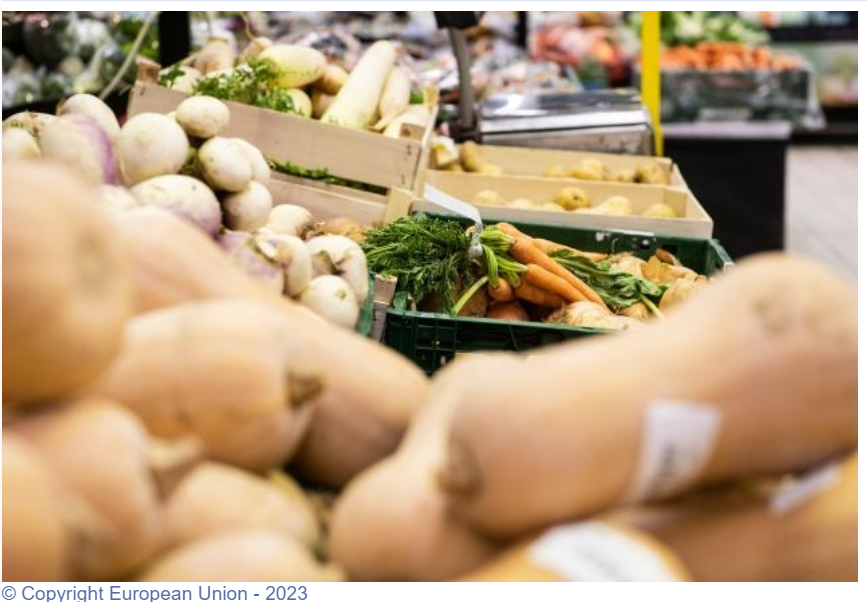The European Commission today presented its vision for agriculture and food, an ambitious roadmap for the future of farming and food in Europe. It sets the scene for an attractive, competitive, resilient, future-oriented and fair agri-food system for current and future generations of farmers and agri-food operators.
All of the measures set out in the vision are premised on further simplifying our policies and making greater use of innovation and digitalisation. Later in 2025, the Commission will propose a comprehensive package of simplification of the existing agricultural legislative framework together with an EU digital strategy for agriculture to support the transition to a digital-ready agriculture.
President of the European Commission Ursula von der Leyen she said: "Our farmers are at the heart of the EU's food production system. Thanks to their hard work every day, we all have safe and quality food. Yet our farmers face increasing challenges from global competition and climate change. That is why today we are proposing a comprehensive strategy to make farming more attractive, resilient and sustainable."
The vision outlines four priority areas:
- Attractive industry: Agriculture must have the necessary stability to encourage young people to enter the profession, including through fair incomes and better targeted public support. They must also be actively encouraged to take advantage of innovation and new business models, including carbon and natural resource credits, as complementary sources of income. The Commission is committed to ensuring that farmers are not systematically forced to sell their products below the cost of production and will take concrete action to this end, including through the review of the Unfair Commercial Practices Directive. The Commission will also present a generational renewal strategy in 2025 with recommendations on the measures needed at both EU and national/regional level to address the barriers preventing young and new people from entering the profession.
- A competitive and resilient industry: The EU will continue to prioritise food security and sovereignty in various ways. Trade negotiations and agreements will be used to their full extent, while protecting the interests of European farmers. The vision also responds to the demands of farmers, citizens and society at large for greater alignment of production standards for imported products to ensure that ambitious EU standards do not lead to competitive disadvantage, while being in line with international rules. For this reason, the Commission will start taking steps in 2025 to assess the impact of greater harmonisation of standards as regards hazardous pesticides banned in the EU and animal welfare. In addition, consistent enforcement and monitoring of food safety standards remains a non-negotiable priority. The Commission will strengthen its focus on livestock production to support the long-term future of the sector.
- A future-proof industry: European agriculture has an important role to play in the transition to a low-carbon economy. The Vision recognises the need to reconcile climate action with food security and the specific challenges facing the sector. Farmers should be rewarded for adopting environmentally friendly practices. In this context, the Commission will carefully consider a possible further ban on the use of pesticides if alternatives are not available within a reasonable time and streamline access to biopesticides on the EU market. The Commission will also develop a voluntary benchmarking system, the "on-farm sustainability compass", to help farmers measure and improve performance at farm level. A water resilience strategy will also be developed to address the urgent need for more efficient water use.
- Fair living and working conditions in rural areas: The Commission will present an updated Rural Action Plan to ensure that rural areas remain vibrant, functional and deeply connected to the EU's cultural and natural heritage. An annual food dialogue will also be launched with a wide range of stakeholders, including consumers, farmers, industry and public authorities, to find solutions to issues such as food affordability and innovation. In the future, the Commission will also look closely at reducing food waste and addressing societal concerns about animal welfare.
Going forward, the future Common Agricultural Policy (CAP) will be simpler and more targeted under the forthcoming draft Multiannual Financial Framework (MFF), with support more focused on farmers who are actively involved in food production, with a particular emphasis on young farmers and those farming in areas with natural constraints. Priority will be given to incentives rather than conditions.
The vision for agriculture and food was proposed as a priority initiative for the first 100 days of this Commission's mandate, led by Executive Vice-President Fitto and Commissioner Hansen under the leadership of President von der Leyen. Based on the report of the Strategic Dialogue on the Future of EU Agriculture and in consultation with the European Agriculture and Food Council, the vision aims to ensure the long-term competitiveness and sustainability of the EU's agricultural and food sector. Based on the latest Eurobarometer results, EU citizens overwhelmingly agree that ensuring a stable food supply in the EU at all times is essential.
europa.eu/ gnews.cz - RoZ



